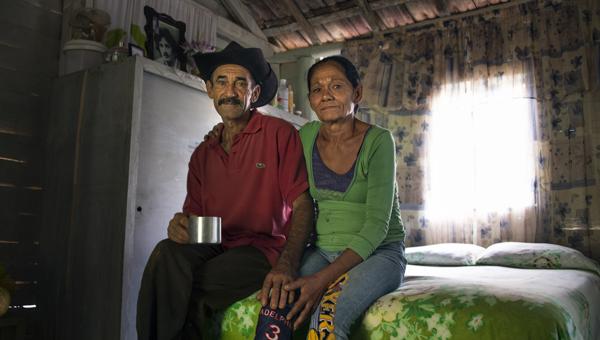While in Cuba, Cooper photographed the life of subsistence farmers, or “campesinos.” Cooper worked with a collaborator, Julio Ángel Larramendi Joa, and their exhibit, “Campesinos,” will be shown at the Massimiliano Massimo Institute in Rome starting on June 4, as part of a celebration of 80 years of diplomatic relations between Cuba and the Vatican.
Cooper is the artist-in-residence at The University of Alabama Honors College. He was speechless when he heard that his work would travel to Italy, and said this was the biggest development in the history of his career.
The “Campesinos” exhibit was on display in Havana when the wife of the Cuban ambassador to the Vatican saw it and felt it needed to be included in the upcoming celebration of the history of two countries. After being shown in Rome, “Campesinos” will travel to five other cities in Italy, and then to England, China and South America.
Cooper first went to Cuba in 2003 to photograph dignitaries from The University of Alabama on their first trip to the country. He said he knew then that it was “his kind of place.” The artist was drawn to similarities between Cuba and the Black Belt region in southern Alabama, he said. In both parts of the world, he said the people are gracious and the landscape is incredible.
The artist met his partner for the project, Larramendi, after finishing a series of photographs on the city of Havana. Cooper said people told him he hadn’t seen Cuba until he’d seen the campesino — the heart and soul of the country.
The team then decided to collaborate on a project about life in the rural parts of the island. The journey took 15 months off-and-on, and the pair traveled a total of 10,000 miles.
Many Cubans Cooper met had never seen an American, he said.
“I was able to glimpse at a way of life that was very familiar in the South in the ‘30s, ‘40s and ‘50s,” Cooper said. “It’s that same life that’s still existing in Cuba. Very basic, day-to-day survival. The most incredible people I’ve ever met.”
Cooper described the campesinos as incredibly generous.
“They never asked for anything from me; they gave me everything they had,” he said.
He also said the farmers were not inquisitive toward him.
“[They] assumed that if I wanted to take their photograph that they must be important people,” Cooper said. “That just blew my mind. If I was going to take the time to spend time with them, they thought it was a gift.”
Cooper said during his travels he was amazed that he never heard anyone criticize the United States, though they often lamented the existence of a trade embargo between the two countries. When asked about the President’s recent decision to lift this restriction, Cooper said it was “a dream come true for the Cubans” and he believed it would benefit both countries.
Jacqueline Morgan, associate dean of the Honors College, is traveling to Rome with Cooper this week. She said the greatest strength of the team behind the exhibit was its ability to capture the dignity and spirit of the people and the team’s talent as photographers and artists.
Mark Mayfield, Editorial Advisor at the Office of Student Media and longtime friend of Cooper, said the most significant thing about the “Campesinos” exhibit was the way it captured the “real people of Cuba.”
“The people who basically don’t have a voice… they’ve given them a voice,” Mayfield said.









